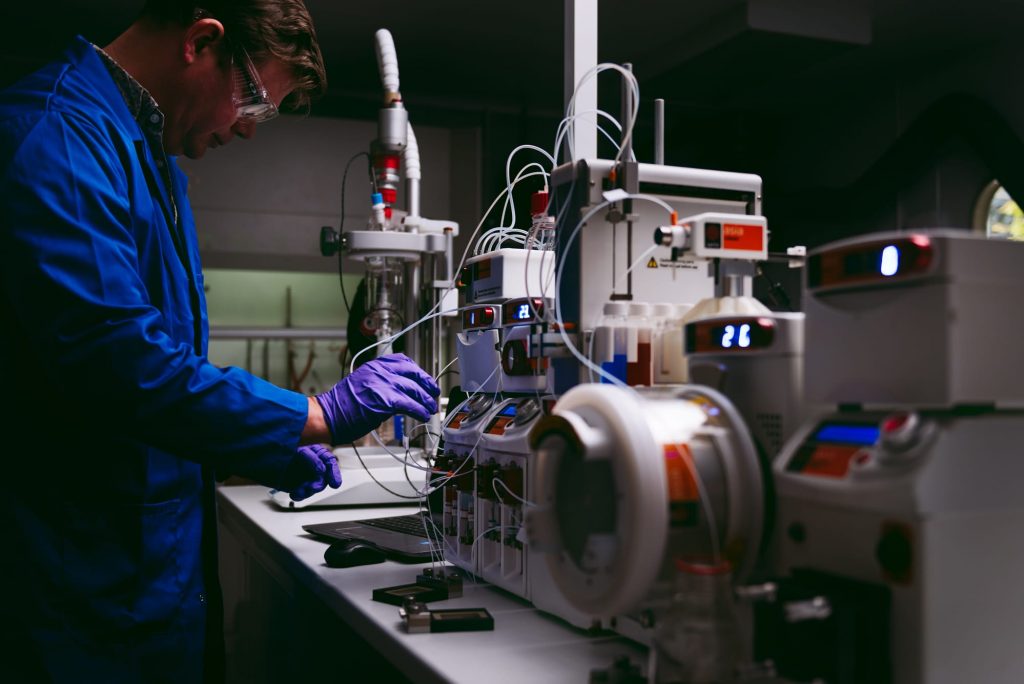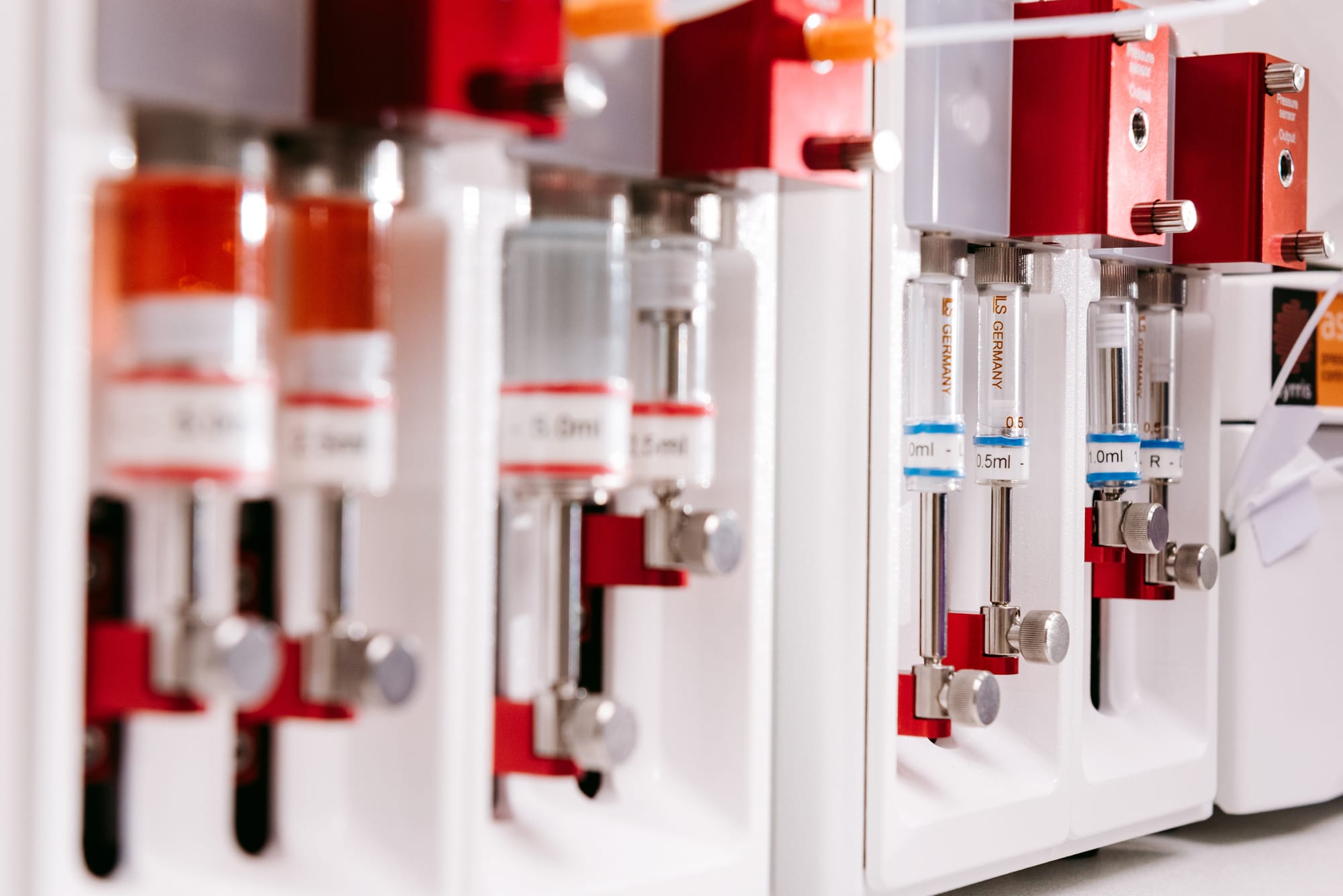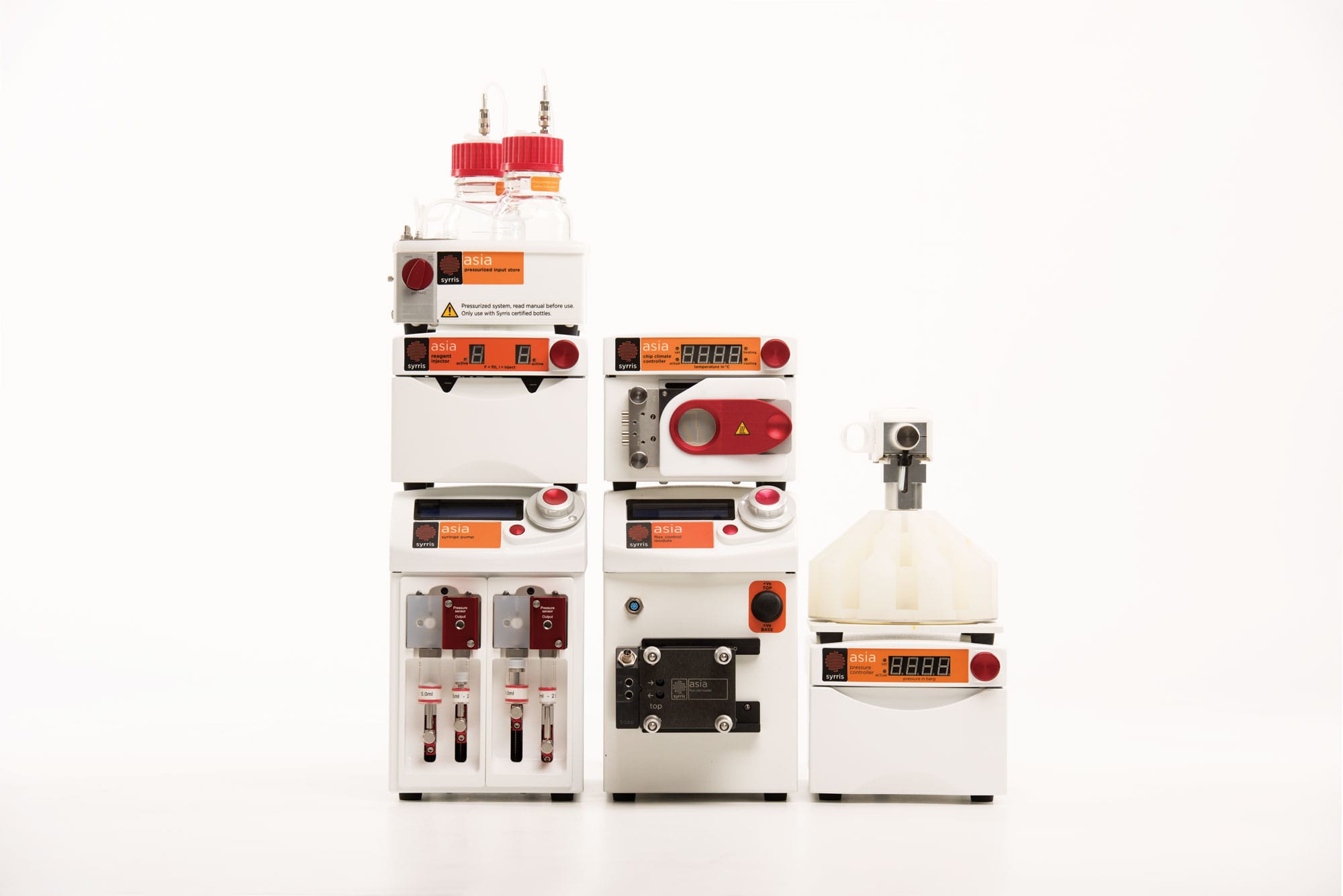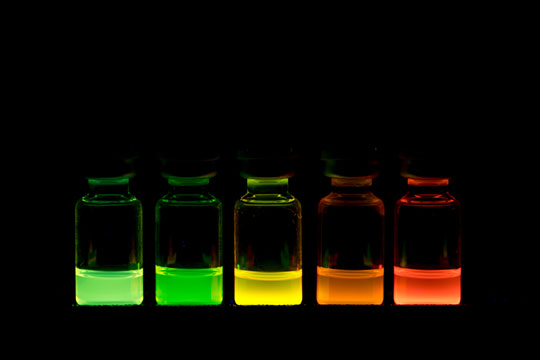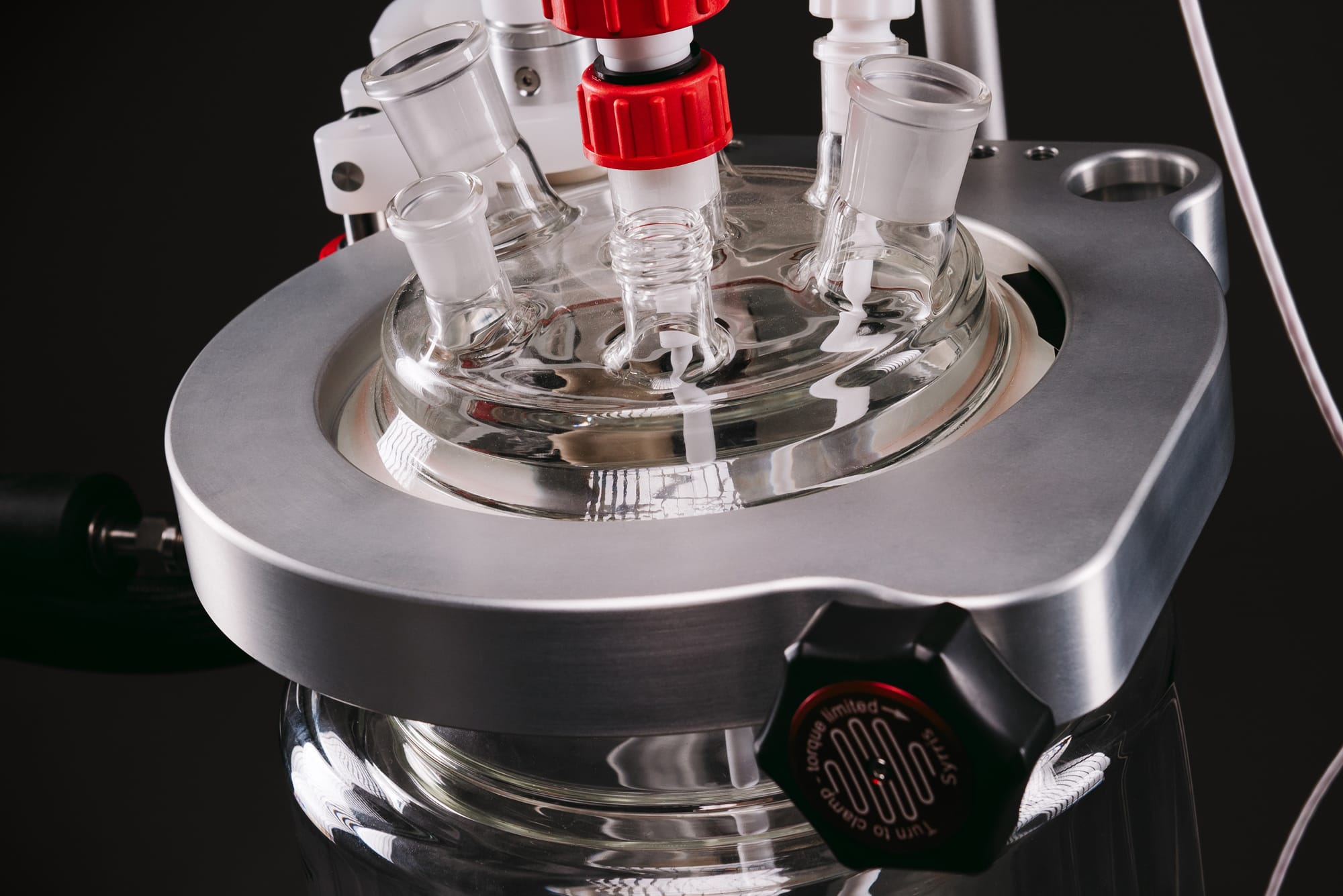Learn all about flow chemistry and discover why chemists in various industries including pharmaceuticals, petrochemicals, agriculture, chemicals, and more are introducing flow chemistry into their labs.
What is flow chemistry and how does it work?
“Flow chemistry”, sometimes referred to as “plug flow”, microchemistry”, or “continuous flow chemistry”, is the process of performing chemical reactions in a tube or pipe. Reactive components are pumped together at a mixing junction and flowed down a temperature-controlled pipe or tube.
Discover the “what is flow chemistry” application page for a detailed breakdown of how it all works.
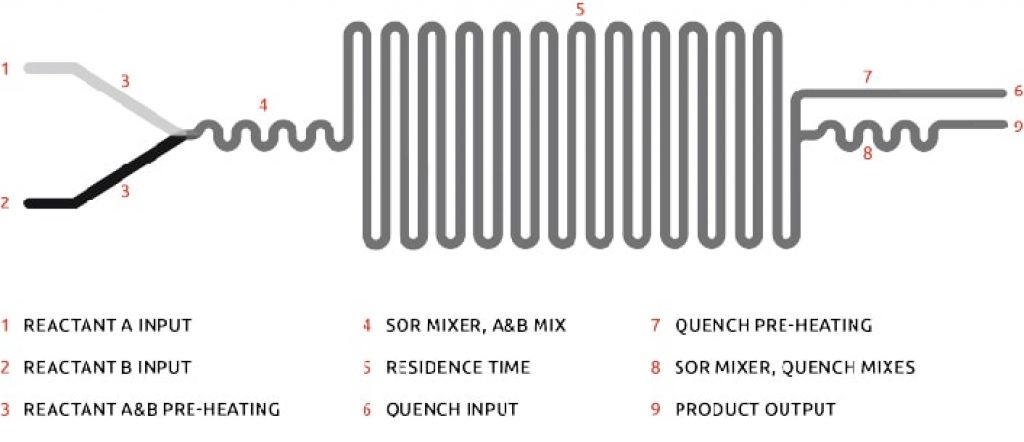
9 reasons you need to consider performing your chemistry in continuous flow
So you know what flow chemistry is, but why should you consider introducing flow chemistry techniques into your lab?
Faster, safer, more selective reactions with improved yields are just a few of the reasons. Discover this blog post to see the 9 main reasons your lab needs to consider using continuous flow.
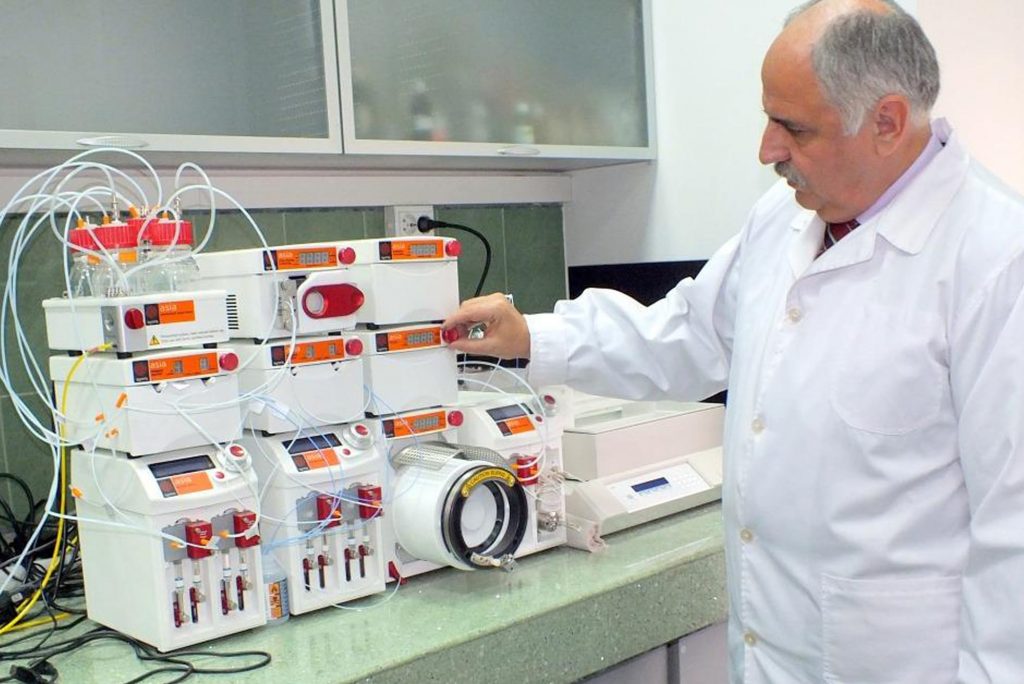
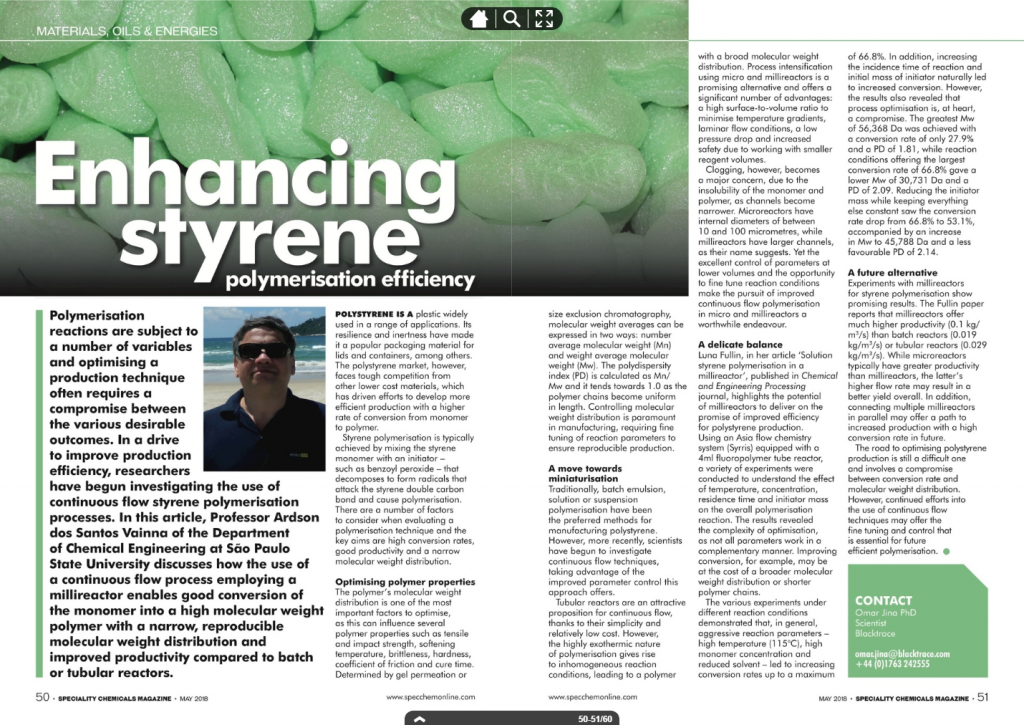
Editorial: Enhancing the efficiency of styrene polymerization
In an article published in the May edition of Speciality Chemicals Magazine, Professor Ardson dos Santos Vianna, Department of Chemical Engineering, São Paulo State University, discusses how the use of a continuous flow chemistry process in a Syrris Asia Flow Chemistry microreactor system enhances the efficiency of styrene polymerization in an effort to combat the introduction of other lower cost packing materials.
Discover popular applications and reactions in continuous flow
Customer story: A new dimension in drug discovery for Gedeon Richter
Using a Syrris Asia Flow Chemistry system, drug discovery researchers at innovative pharmaceutical company, Gedeon Richter, have been able to create new heterocyclic scaffolds – chemistry that was impossible to them before adopting flow chemistry techniques.
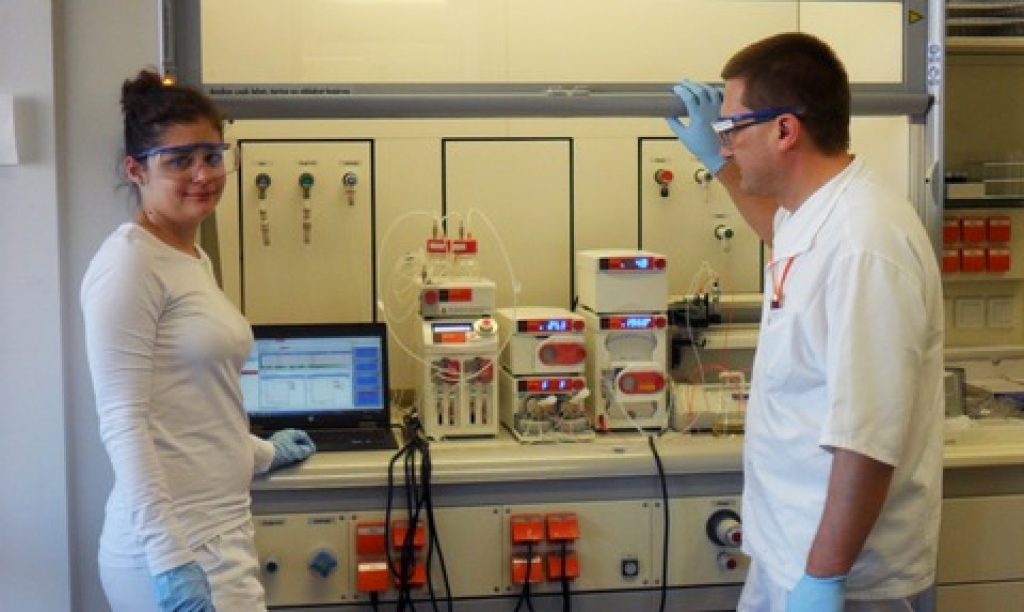
Customer story: Asia Flow Chemistry System proves ideal for biocatalytic applications
Professor Dr. Rodrigo de Souza, Associate Professor in Organic Chemistry, and his team at the Institute of Chemistry of the Federal University of Rio de Janeiro, are using an Asia Flow Chemistry System to develop biocatalyzed continuous flow reactions – the first University group in Brazil to do so.
